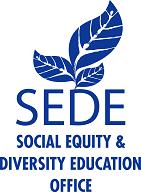McGill devotes a week to R-E-S-P-E-C-T
McGill devotes a week to R-E-S-P-E-C-T McGill University
User Tools (skip):
McGill devotes a week to R-E-S-P-E-C-T

Most of us think we know harassment when we see it. But do we?
"It can be complicated," says program officer Veronica Amberg, of McGill's Social Equity and Diversity Education (SEDE) office. "Identifying and defining harassment is not always obvious."
To help the community navigate the gray areas, SEDE is hosting Cultivate Respect, McGill's first annual Harassment Prevention Week, from October 23 to 27. The campaign is designed to raise awareness of harassment and to teach people how to respond.
Contrary to popular belief, harassment isn't limited to a powerful person bullying a subordinate. For example, a student might stalk a professor because of a bad grade. Harassment can happen in any sector of the university: between faculty and staff, between workplace peers, between students and faculty, or student-on-student.
"The number of groups that have worked with us to create Cultivate Respect sends the message that we're all concerned about the issue," says Vincia Herbert, administrative coordinator for SEDE. "We're not trying to target any one group. Everyone has a stake in how they want to be treated."
Whether harassment is sexual, psychological, or discriminatory, it affects the entire community, not just the recipient. It lowers morale, damages the university's reputation and reduces group productivity. Most important, it's illegal. That's why everyone is encouraged to attend Cultivate Respect.
During that week, SEDE will host workshops on cross-cultural communications and conflict resolution, among others. In addition, a community forum on bullying and harassment in schools will be presented as part of the CBC series Montreal Matters.
In Cultivate Respect's lunchtime play on Wednesday, October 25, actors will present several scenarios on which the audience gets to vote, Canadian Idol-style, which ones constitute harassment.
Last year, SEDE hosted roundtable discussions between McGill faculty, staff, and students to discuss harassment and recount first-hand experiences. Some of these were incorporated into the script.
Beyond Cultivate Respect, other upcoming programs include a series of "Learning Circles" that bring together community members from diverse backgrounds. Led by graduate student Elizabeth Meyer, a SEDE project developer, the program aims to advance understanding and respect of personal differences — whether ethnic, religious, and socio-economic.
In addition, Karan Singh and Goran Marjanovic, work-study students in the SEDE office, are planning cultural events, including a springtime art show on diversity, to bring different facets of the McGill community together.
Increasing respect for diversity. Creating a better sense of community. Eliminating harassment. That's a lot of work for one small office. SEDE's goals are only attainable if the rest of the community gets involved too. Attending Cultivate Respect is a good start.
To register for Cultivate Respect events, go to www.mcgill.ca/hr/staffdevelopment, or call 514-398-2039. For more details, see www.mcgill.ca/equity_diversity.

